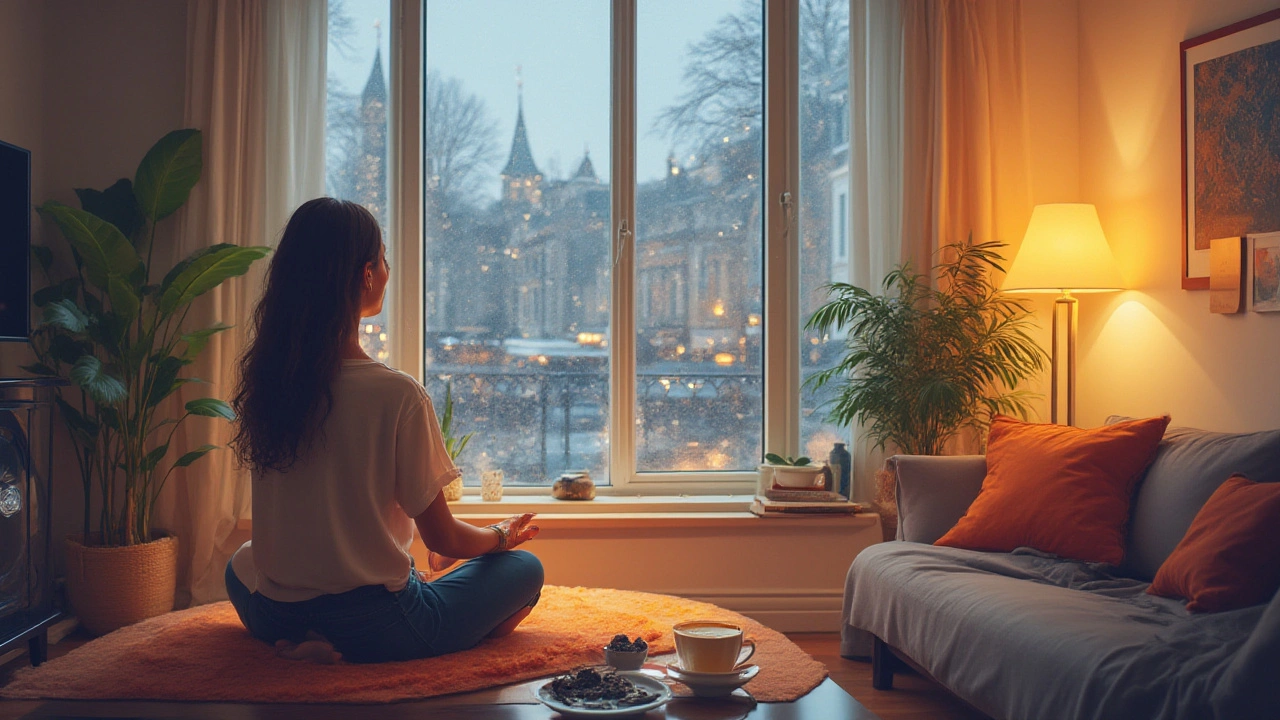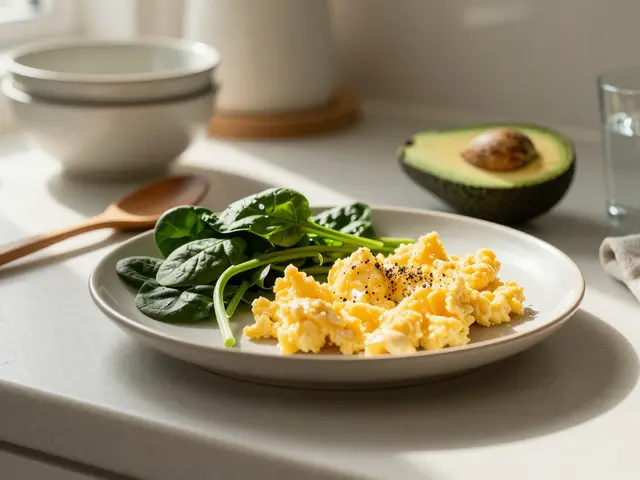Picture this: it's a weekday morning in Perth, the sun is rising over quiet streets, but your mind is already racing—a to-do list, deadlines, errands, not to mention that never-ending group chat pinging nonstop. Sound familiar? If stress feels like an unruly roommate who just won't move out, you're far from alone. Chronic stress isn't just a mental drag; it's got plenty of sneaky effects on your body too, and Aussies are feeling it more than ever. Let’s cut through the noise and talk real-world ways to master stress reduction so it doesn’t master you.
Understanding the Science: What Stress Actually Does
Stress isn’t a buzzword—it's a basic survival tool, hardwired over thousands of years. Back when humans faced real threats like hungry dingoes or wild snakes, the stress response kicked in automatically. Your heart races, you breathe faster, muscles tense, and energy surges. That's fine for sprinting away from trouble, but when your "danger" is work emails or traffic jams, your body can’t tell the difference. Chronic, unrelenting stress keeps you in this on-edge state, wearing out both mind and body.
If you ever wondered what’s actually happening under the hood, it’s your HPA axis at work (that’s hypothalamic-pituitary-adrenal—try saying that after two coffees). This system floods your body with cortisol and adrenaline, prepping you for action. The catch? Too much cortisol, for too long, starts messing with everything from immunity and sleep to how your body stores fat. Research from the Australian Institute of Health and Welfare in 2024 showed that 36% of adults report high levels of stress, with women reporting slightly higher rates than men. Chronic stress is now linked with not just anxiety and depression, but also heart disease, diabetes, and even some autoimmune problems.
You might notice it in headaches that keep coming back, bad sleep, crankiness, digestive issues, or finding it harder to focus at work or school. It’s not your imagination—stress really does disrupt almost every system in your body. Your gut reacts (hello, stomach aches), immune system falters (more colds, anyone?), and your heart works overtime. If left unchecked, chronic stress even accelerates aging at the cellular level. Ever noticed how some people seem to age overnight after a tough period? Science says that’s not just myth.
| Effect of Chronic Stress | Physical Impact |
|---|---|
| Immune System | Weaker, more frequent illness |
| Sleep | Insomnia, poor sleep quality |
| Heart Health | Increased blood pressure, higher risk of heart disease |
| Digestive System | Stomach aches, IBS, discomfort |
| Mental Health | Anxiety, depression, lowered focus |
| Weight | Increased fat storage, changes in appetite |
| Skin & Hair | Breakouts, hair thinning |
So the real question is—how do we not just survive, but thrive, in a world that feels so much busier and noisier these days?

The Best Proven Strategies for Everyday Stress Management
Let’s get real: you can’t just "relax" on command, especially when your brain is doing mental gymnastics. But there are techniques, backed by research and down-to-earth experience, that actually work for everyday people. You've probably heard phrases like “self-care” thrown around a lot, but what does it really mean? ‘Bubble baths and candles’ is just a meme. Daily stress-busting is about small, doable habits, not Instagram-perfect routines.
The first one? Don’t underestimate the power of movement. You don’t need to become a gym junkie—just get your body moving in ways you like. A 2023 CSIRO report found that brisk walking for 30 minutes a day lowers cortisol levels by almost 20%. If you can swing a regular walk along the beach or even a fast-paced stroll at lunch, you’re miles ahead already. Dancing in your living room, cycling, a swim, or chasing your dog around the backyard all count. Regular physical activity isn’t just about fitness; it literally helps your body clear out extra stress hormones.
Another big one is sleep. Think of sleep as your nightly software update. Aussies seem to be struggling—over a third of adults admit they’re not getting good rest, and stress is a big part of that. Make your bedroom a sleep sanctuary: dim lights at night, screens off at least thirty minutes before bed, and a regular wind-down routine. Some people swear by herbal teas like chamomile, others use breathing exercises. If you’re looking for a low-cost hack, keep your room cool and dark—simple, but it actually works.
Nutrition plays a bigger role in stress than many realise. No, you don’t have to turn your kitchen into a health spa overnight, but stabilising blood sugar with good food choices is smart. That means wholegrains over white bread, lots of veggies, lean protein, and being careful with caffeine (I know, that hurts) and sugar. Foods rich in magnesium—like spinach, nuts, and even dark chocolate—can help relax muscles and nerves. And don’t skip meals; erratic eating can make your mood wobbly and stress worse.
Ever heard of mindfulness? Before you roll your eyes, don’t worry—we’re not talking about chanting on a mountaintop. Mindfulness just means turning your attention to what’s happening right now, instead of rerunning that embarrassing conversation from Tuesday. There’s good evidence for it: a 2022 study from the University of Sydney found that mindful breathing for as little as five minutes, twice a day, led to a 25% drop in reported stress among participants. Start with apps like Calm or Insight Timer, or try a simple timer and just watch your breathing come and go. Even one mindful minute counts.
Social connection is another major stress buffer. Humans are wired for community, not isolation, even if you’re an introvert. Squeeze in time for friends, family—or even chat with your barista or neighbour. Real conversation and laughter trigger a release of oxytocin, a hormone that counteracts the effects of cortisol. Commit to one real-life catch up a week or send a funny message to a mate each day. Studies even show that people who regularly take time for gratitude (like writing down three things they’re thankful for each night) sleep better and have lower stress levels overall.
If you like structure, try a stress journal. Writing out what’s bothering you—and jotting down possible solutions—can help your brain process worries and spot patterns. It’s not about keeping a perfect diary; even bullet points do the job. Over time, you’ll see what’s triggering your stress, just like charting weather forecasts.
- Move your body—find something fun, not just "exercise"
- Prioritise sleep—consistency matters more than late-night scrolling
- Eat smart—keep blood sugar steady and magnesium up
- Try brief daily mindfulness—even one minute can make a dent
- Stay connected—friends, pets, neighbours, whoever keeps you smiling
- Keep a stress journal—it’s your private weather report
It takes some trial and error to find what works for you, and that’s normal. Don’t be afraid to mix it up—small bites of different strategies usually work better than just one ‘magic’ habit. And when life gets extra tough, don’t hesitate to chat with a GP or mental health pro—they see this every day, and early support is never wasted.

Living Well: Building Your Personal Stress-Resistant Life
Okay, so you’re armed with the science and the tools. What next? Creating a stress-resistant life isn’t about erasing tough days or pretending you’ll never lose your cool again. It’s about setting yourself up so when stress hits, you bounce back quicker, and it doesn’t steal all your joy or energy. Instead of letting stress run your schedule, you can learn to steer it.
Let’s get a bit practical. Take your environment: a cluttered room or desk can actually raise cortisol—even studies with university students in busy dorms showed a 22% rise in stress when their living space was chaotic. Try a quick daily tidy or even put on music and make it a dance-cleaning session. Plants can help, too. The humble indoor spider plant or pothos isn’t just pretty—in fact, plants lower air pollution and help soothe frazzled nerves. Research from Curtin University in 2023 suggested just three houseplants per room can reduce stress by up to 15%.
Boundaries are another biggie. With smartphones buzzing 24/7, Perth doesn’t stop—so if you don’t set limits, no one will do it for you. Try scheduling "do not disturb" time, even for just an hour a night, where you unplug and do something just for yourself. This isn’t just about screen time. It could be saying no to extra work, skipping that event you’re dreading, or even creating a five-minute ritual when you arrive home to reset your brain. Boundaries help your brain feel safe—less on-edge, more supported.
It’s also worth looking at your mindset. We all catastrophise sometimes (“If I’m late, my boss will hate me, then I’ll get fired…”), but learning to challenge those thoughts actually makes stress much less sticky. Try asking yourself: what’s the evidence for this thought? What’s the worst that could really happen? And, what would I say to a friend in the same situation? Writing down a more balanced version of your worry helps you step back and see things more clearly.
If you can, build "islands of calm" into your day. That could be a lunch in the park, music on full blast in your car, a quiet cuppa, a silly TikTok dance, or whatever gives you a little spark. This isn’t a guilty pleasure—it’s serious brain maintenance. Australians who make time for daily enjoyment, even tiny nuggets of joy, have been shown in 2025 Wellbeing Surveys to report 30% fewer days of high stress than those who keep plugging away without breaks.
Sometimes, stress means you need help outside your regular routine. That’s when community really matters. Perth offers excellent free helplines, walking groups, art classes, and other community activities that get you out of your head and into something bigger. Don’t underestimate the power of a shared hobby—it’s not just social, it’s medicine for the mind.
And yes, technology can actually help, despite what you hear. Try guided meditation apps, yoga videos, or online support groups. Even tools like habit trackers or smartwatches can help remind you to take a breather or move around. But tech only works if you use it intentionally—so don’t let it replace real human connection entirely.
- Declutter your space—little changes lift your mood fast
- Add houseplants or calming objects where you spend the most time
- Set and keep boundaries, especially with tech and work
- Challenge negative thoughts—reframe and write them out if you need
- Create "islands of calm" in your daily routines
- Reach out to your community—finding your tribe makes all the difference
- Use tech on your terms—make it work for your wellbeing, not against it
Stress will always be in the mix, like the seagulls at Cottesloe Beach. But with real, science-backed strategies and a few well-chosen tweaks to your routines, you can tip the balance back in your favour. Life in 2025 is busy, wild, and unpredictable—but you’ve got more tools at your fingertips than ever to protect your wellbeing. Try out a few and see what sticks—you’ll thank yourself when you wake up feeling just that bit more confident, calm, and genuinely alive every single day.





